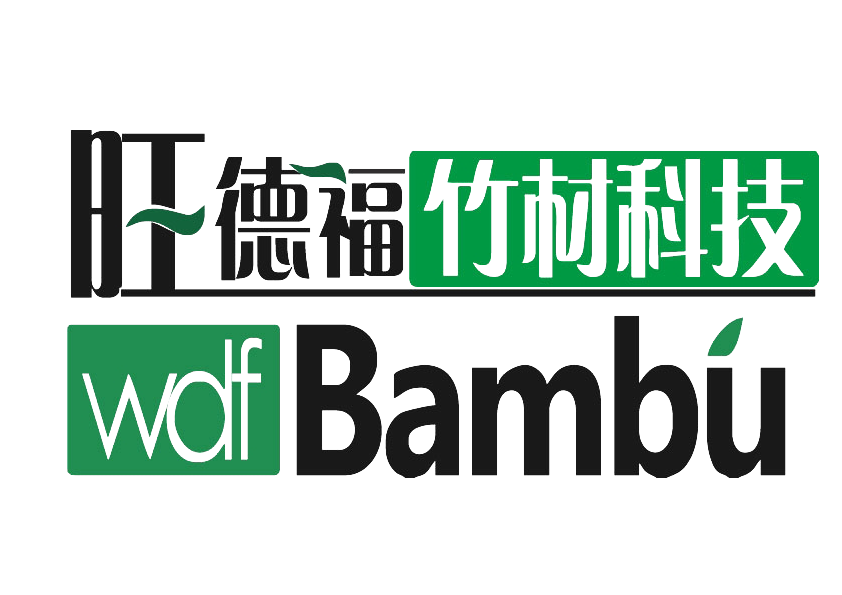Environmental Benefits of Bamboo Products
Renewable Resource with Rapid Growth Cycle
Bamboo grows incredibly fast compared to most other plants, becoming mature within about 3 to 5 years. That's way faster than regular wood from trees which often takes many decades to reach full size. Because it grows so quickly, bamboo is considered a really good renewable resource option. For people trying to protect forests and stop cutting down too many trees, bamboo makes sense as an alternative material. Some research actually shows replacing hardwood with bamboo could cut down on forest destruction quite a bit. What's more, when harvested properly, bamboo doesn't damage surrounding ecosystems much and helps keep different species alive. This makes it stand out as something special among renewable resources these days.
Carbon Sequestration and Reduced Carbon Footprint
Bamboo has this amazing power to soak up way more carbon dioxide compared to regular trees, which cuts down on household carbon footprints quite a bit. Some research shows that bamboo actually grabs carbon from the air at around four times the rate of other tree species. The carbon capture capability makes it really important for fighting climate change too. A recent paper in the Journal of Sustainable Forestry found that when grown in forests, bamboo can lock away roughly 1.5 billion tons of CO2 each year. Beyond just capturing carbon, planting bamboo around homes creates a much greener living space while helping reduce overall emissions.
Biodegradable Nature and Waste Reduction
Bamboo products offer an excellent solution for cutting down on what ends up in landfills since they break down naturally over time, while plastic just sits there causing all sorts of problems for our environment. The fact that bamboo can decompose means better results when it comes to managing trash and helps keep ecosystems healthy too. Environmental groups have tracked this trend showing that switching to bamboo stuff actually takes some weight off those overcrowded landfills, making a real difference in how much garbage we produce overall. So when someone picks bamboo instead of plastic items, they're not only doing something good for the planet but also shrinking their own impact compared to folks who stick with synthetic stuff all the time.
Durability and Longevity in Home Use
Strength Compared to Traditional Hardwoods
When it comes to tensile strength, bamboo actually beats steel hands down, which makes it pretty much the best option around for building strong houses. The stuff just doesn't give up easily. Bamboo products tend to last way longer than regular wood stuff we see all over the place. Scientists who study materials have done tests showing why bamboo stands up so well when things get tough on it. It can handle pretty brutal weather situations better than most hardwood options out there. For anyone wanting their home built to last decades instead of years, investing in bamboo materials pays off big time because they simply don't break down like other woods do over time.
Moisture and Pest Resistance
Bamboo comes with built-in defenses against mold and mildew thanks to natural compounds in its fibers, making it work well in all sorts of settings from humid bathrooms to outdoor decks. Regular wood tends to attract pests like termites and other wood-boring bugs, but bamboo just doesn't appeal to them for some reason. Studies from material science labs show that bamboo stands up to these threats much better than traditional woods do. The result? Less need to fix or replace things over time. Homeowners who switch to bamboo often find they spend less money on repairs and enjoy their spaces longer without worrying about rot or insect damage.
Low-Maintenance Requirements
Keeping bamboo floors looking good takes way less work than hardwoods, which need constant oiling, waxing, and refinishing just to stay presentable. Bamboo holds up surprisingly well even in tough conditions, showing hardly any signs of wear after years of use. Research into maintenance costs shows bamboo comes out ahead of regular wood options when we look at what things cost over time. For people trying to cut down on home maintenance expenses without sacrificing quality, bamboo offers both environmental benefits and real money savings in the long run. Homeowners who switch to bamboo typically find they spend less time worrying about floor care and more time enjoying their space.
Health and Safety Advantages
Natural Antimicrobial Properties
Bamboo products offer some pretty impressive health advantages thanks to their built-in ability to fight germs. There's something special in bamboo called bamboo kun that actually stops bacteria and fungi from growing on its surface. For people who want cleaner homes, this makes bamboo really useful stuff, particularly around places where moisture builds up like in kitchens and bathrooms. Studies have looked at this stuff too, and they found that bamboo can get rid of nearly all those pesky bacteria hanging out on its surface. When folks start using more bamboo items around the house, they're not just getting nice looking furniture but also helping keep things cleaner overall without needing harsh chemicals.
Non-Toxic Finishes for Family-Friendly Use
Bamboo stuff has become pretty popular lately because it doesn't have those harmful chemicals on the surface, so it's actually safer around little kids who tend to put everything in their mouths. Most companies that make bamboo products these days really care about keeping things green during manufacturing. They cut down on VOCs quite a bit compared to other materials. When parents think about what's going into their homes, this matters a lot. People keep talking about how they're seeing more folks choose bamboo over traditional options, especially when setting up nurseries or kid friendly spaces. Going with bamboo isn't just trendy anymore it genuinely makes sense for anyone wanting better air quality without breaking the bank.
Hypoallergenic Qualities for Sensitive Households
People who suffer from allergies or have sensitive skin often find bamboo to be an excellent choice for their needs. Unlike many other materials, bamboo doesn't leave behind any nasty chemicals or residues that might irritate delicate systems. When used in home products, it actually helps clean up the air inside our homes, something that matters a lot when someone has trouble breathing normally. Studies done by various medical groups show that switching to bamboo items tends to cut down on those annoying allergy flare ups pretty noticeably. Families where kids or adults struggle with seasonal sniffles or skin reactions should seriously consider making the switch to bamboo alternatives. Just think about replacing that old cotton bedding with bamboo sheets and see how much difference it makes over time. Making these changes creates not just a nicer place to live but also supports healthier lungs and overall well being for everyone in the household.
Versatility in Home and Lifestyle Applications
Multi-Room Furniture Solutions
The adaptability of bamboo really shines through when we look at how it fits into all sorts of furniture styles across different rooms in homes today. Whether someone wants something super modern with clean lines or prefers those classic looks passed down through generations, bamboo works surprisingly well either way. What makes this material so special isn't just about appearances though. The actual function matters too. We've noticed over recent years that more people are gravitating toward bamboo pieces because they simply look good but also stand up to daily wear and tear. When folks start bringing bamboo into their living spaces, they get these environmentally friendly options that actually improve the overall feel of a room while still maintaining that desired level of quality and visual appeal most homeowners care about.
Eco-Friendly Kitchen and Bathroom Essentials
Adding bamboo stuff like cutlery and bathroom accessories around the house really helps create a greener way of living. Bamboo lasts much longer than regular plastic items and doesn't end up in landfills after a few months. People are definitely moving away from plastic these days. A bunch of recent market research shows folks want kitchen tools and toiletries that won't sit in the trash forever. What makes bamboo so great? It grows super fast, needs no pesticides, and somehow manages to be both strong and light at the same time. For anyone trying to reduce waste without sacrificing quality, switching to bamboo basics just makes sense. Plus, there's something satisfying about using items that come from renewable sources instead of petroleum byproducts.
Outdoor and Indoor Hybrid Designs
The way bamboo adapts to different conditions makes it really great for using inside homes as well as outside areas. This helps people feel closer to nature without leaving their own backyard. Bamboo can handle all sorts of weather too, so it works pretty well when placed in gardens or on patios where other materials might not last long. A lot of design trends these days are mixing bamboo with other materials to make outdoor spaces more eco friendly. When designers incorporate bamboo into their projects, they're actually helping maintain some sort of balance with the environment while creating those beautiful transitions between what's inside and outside. There's something special about seeing natural elements like bamboo blended seamlessly into everyday living spaces.
Supporting Sustainable Lifestyle Choices
Reducing Reliance on Plastic Materials
Switching from plastic to bamboo represents one of those important moves toward cutting down on trash and pollution problems. Bamboo stuff works really well because it breaks down naturally, so it doesn't pile up in landfills like regular plastic does. A lot of companies around the world are pushing bamboo products these days since they fit right into this whole sustainability movement people talk about so much. Some studies actually show households use less plastic when they start buying things made from bamboo instead. This makes sense when looking at what happens to all that plastic waste otherwise. Making the switch to bamboo just makes good sense for our planet in the long run.
Alignment with Circular Economy Principles
Bamboo fits really well with circular economy ideas because it grows back so fast and lasts through multiple uses. When people start using bamboo products instead of plastic ones, they're actually helping cut down on trash while encouraging nature to replenish itself. Some research shows that bringing more bamboo into home life makes a real difference for sustainability numbers, which helps build communities that care about going green. Looking at bamboo this way means everyday decisions match up with what the world needs environmentally, making sure our habits work for both people and the planet in the long run.
Future Innovations in Bamboo Technology
The research going on with bamboo tech is opening up all sorts of interesting possibilities in different sectors. New methods are popping up that actually make working with bamboo faster and easier while creating products people want to use daily. According to folks who know their stuff in the industry, we're probably looking at a big boom in bamboo products soon thanks to better sustainable material options. Imagine walking into stores and seeing everything from furniture to kitchenware made from this versatile plant. Bamboo isn't just becoming popular among eco-conscious shoppers either – businesses are starting to realize how practical and cost-effective it can be for regular products too. We might see more bamboo items showing up not just in homes but also in offices and other commercial spaces over the next few years.
FAQ
What makes bamboo a sustainable resource?
Bamboo is highly sustainable due to its rapid growth cycle, making it a renewable resource that can be harvested sustainably without damaging the ecosystem or depleting resources.
How does bamboo contribute to carbon sequestration?
Bamboo absorbs carbon dioxide more efficiently than comparable trees, sequestering significant amounts of CO2 annually, which helps mitigate climate change impacts.
What are the advantages of bamboo's biodegradability?
Bamboo naturally decomposes, reducing landfill waste and contributing to ecological sustainability by easing the pressure on waste management systems.
Is bamboo suitable for people with allergies?
Yes, bamboo's hypoallergenic properties make it ideal for allergy sufferers as it improves indoor air quality and is free from harmful residues.
Can bamboo replace plastics effectively?
Yes, bamboo serves as an excellent substitute for plastics due to its biodegradable nature, reducing environmental pollution and supporting sustainable lifestyles.



 Home
Home